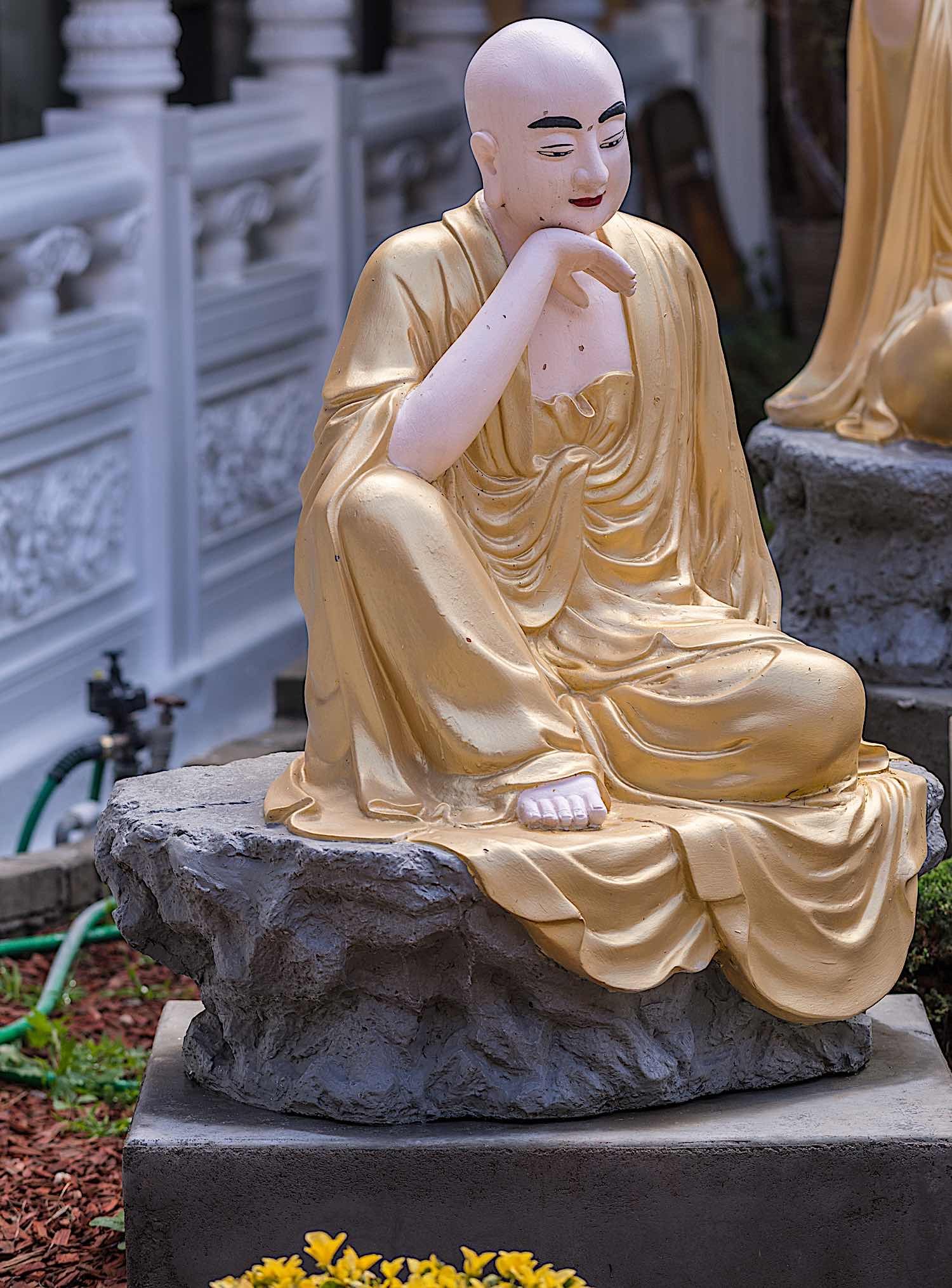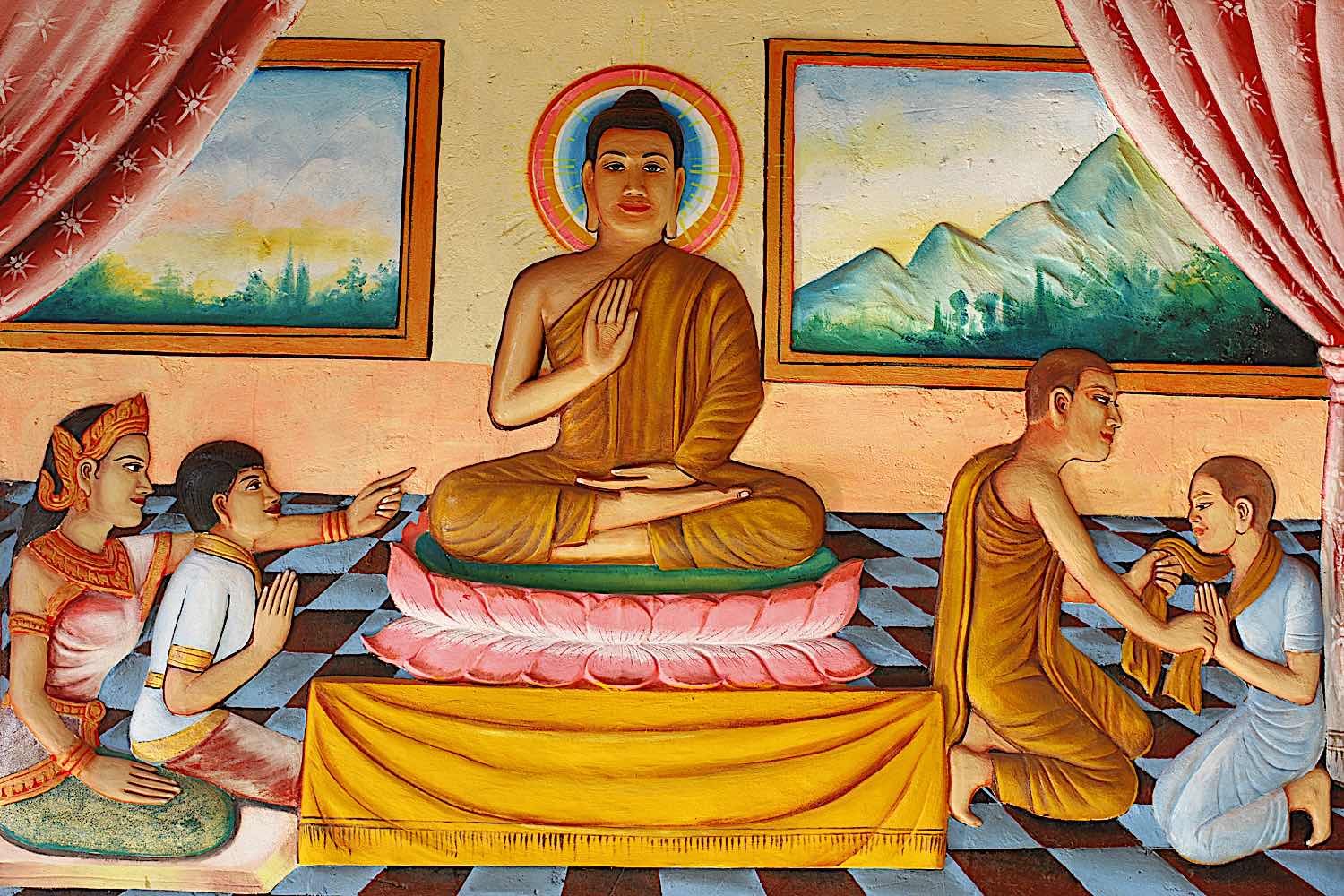
Have you ever paused to consider the profound significance of names and the rich narratives that accompany them? Today, we embark on an intriguing exploration of the name **Rahula**, which belongs to the son of Siddhartha Gautama, a figure who would ultimately be revered as the **Buddha**. The story of Rahula is not merely a tale about a name; it encapsulates the remarkable journey of a young prince, the complexities of fatherhood, and the relentless pursuit of **enlightenment**. As we delve deeper into this narrative, we will uncover the layers of meaning behind Rahula’s name and its implications for both his life and the teachings of his father, Siddhartha, who sought to understand the nature of suffering and the path to spiritual awakening. This exploration reveals how names can carry the weight of history and personal transformation, reflecting the intricate connections between identity, legacy, and the quest for deeper understanding in life.
Who Was Rahula?

Rahula, a name that translates to “fetter,” serves as a powerful symbol of the connections that tie us to our earthly existence. He was born into a life of privilege as the son of Siddhartha, who would later become known as the Buddha, and his devoted wife, Yasodhara. However, the significance of Rahula’s name extends beyond mere familial ties; it encapsulates the profound struggles his father faced on his spiritual journey.
### The Birth of Rahula
In various retellings of the tale, Rahula entered the world just moments before Siddhartha made the life-altering decision to leave the comforts of the palace. Picture this poignant scene: a young father stands in the dim light of the chamber, gazing lovingly at his sleeping wife and their newborn son. In that moment, Siddhartha is caught in a whirlwind of emotions, grappling with the weight of his responsibilities as a husband and father while simultaneously yearning for a deeper understanding of life and the pursuit of truth. This internal struggle is one that resonates with many of us, as we often find ourselves torn between our personal aspirations and the obligations we hold to our loved ones.
### The Night of Departure
On the night that would change everything, Siddhartha faced a monumental choice. He resolved to leave the palace behind, driven by an insatiable desire to comprehend the nature of suffering and the essence of existence itself. Yet, the question loomed large in his mind: how could he abandon his family, especially his newborn son? This profound internal conflict is a universal experience, one that many individuals encounter at various stages of their lives. The tension between personal growth and familial duty is a theme that transcends time, reminding us of the sacrifices often required in the pursuit of enlightenment and understanding.
The Symbolism of Rahula

Rahula’s name, which translates to “fetter,” carries profound significance that goes beyond mere nomenclature. It symbolizes the various attachments we form throughout our lives—be it our relationships with family and friends, the material possessions we accumulate, or the desires that drive our ambitions. Siddhartha’s transformative journey was fundamentally about liberating himself from these fetters in order to attain the ultimate state of **nirvana**.
### Fatherhood and Enlightenment
As Siddhartha set forth on his spiritual quest, he was confronted with the profound reality of fatherhood. This raises a compelling question: how can one balance the pursuit of spiritual enlightenment with the responsibilities and commitments that come with being a parent? This dilemma is one that resonates deeply with many individuals today, as we strive to harmonize our personal aspirations with our obligations to our families and loved ones.
#### The Lessons of Detachment
Throughout his journey, Siddhartha discovered that true **detachment** does not equate to abandoning those we care about. Instead, it involves a deeper understanding of the impermanence that characterizes all aspects of life. This vital lesson is essential for anyone who seeks to find inner peace amidst the chaos and unpredictability of the world around us. By embracing the transient nature of existence, we can cultivate a sense of freedom that allows us to love and care for others without becoming overly attached to them.
The Impact of Rahula’s Life

Rahula grew up in the shadow of his father’s choices, perceiving Siddhartha as a distant figure who had embraced the path of **renunciation**. This decision, while noble in its pursuit of enlightenment, left Rahula grappling with a complex identity. He often wondered how his father’s quest for spiritual awakening affected his own sense of self and belonging. As he navigated the challenges of childhood and adolescence, the absence of a paternal figure loomed large, shaping his thoughts and feelings about family, duty, and purpose.
### Rahula’s Journey to Understanding
As he matured, Rahula felt an undeniable pull to seek out his father. The emotions swirling within him were tumultuous—a blend of longing, confusion, and perhaps a hint of resentment. This journey was not merely a physical one; it was an emotional pilgrimage that would ultimately lead to a pivotal meeting. When father and son finally came face to face, it was a moment charged with significance. This encounter served as a bridge, connecting Siddhartha’s profound quest for enlightenment with Rahula’s deep-seated need for understanding and acceptance.
#### The Teachings of the Buddha
During their meeting, Rahula was not just a son yearning for paternal affection; he emerged as a seeker in his own right, eager to learn from the wisdom of his father. Siddhartha shared profound teachings that emphasized the importance of **mindfulness** and **self-awareness**. These lessons resonated deeply with Rahula, offering him guidance and insight that would illuminate his own path. As he absorbed these teachings, he began to forge his own identity, one that was informed by both his father’s legacy and his personal experiences. This transformative journey would ultimately shape Rahula into a thoughtful individual, capable of navigating the complexities of life with a newfound sense of purpose.
Lessons from Rahula’s Story

So, what can we learn from Rahula’s story? Here are some key takeaways:
| Lesson | Description |
|---|---|
| Embrace Detachment | Understand that attachments can lead to suffering, but they also teach us love. |
| Seek Understanding | Communication is key in relationships; seek to understand before being understood. |
| Value Mindfulness | Practice being present; it can transform your perspective on life. |
The Legacy of Rahula

Rahula’s journey didn’t end with his father’s teachings. He became a significant figure in his own right, embodying the principles of Buddhism. His life serves as a reminder that we all have the potential to grow and learn from our experiences.
Continuing the Teachings
Rahula went on to become a monk, spreading the teachings of the Buddha. His life illustrates that the quest for **enlightenment** is not just a solitary journey; it’s one that can be shared and passed down through generations.
The Relevance Today
In today’s fast-paced world, the lessons from Rahula’s story are more relevant than ever. We often find ourselves caught in the web of **responsibilities** and **expectations**. But just like Siddhartha, we can choose to seek a deeper understanding of ourselves and our relationships.
:max_bytes(150000):strip_icc()/longmen-vairocana-56a0c4d93df78cafdaa4dafa.jpg)
In conclusion, the story of Rahula is not just about a prince and his father; it’s about the universal quest for **meaning** and **connection**. It teaches us that while we may feel tethered by our attachments, we also have the power to break free and find our own paths to enlightenment. So, what’s holding you back? Are you ready to embark on your own journey of awakening?

